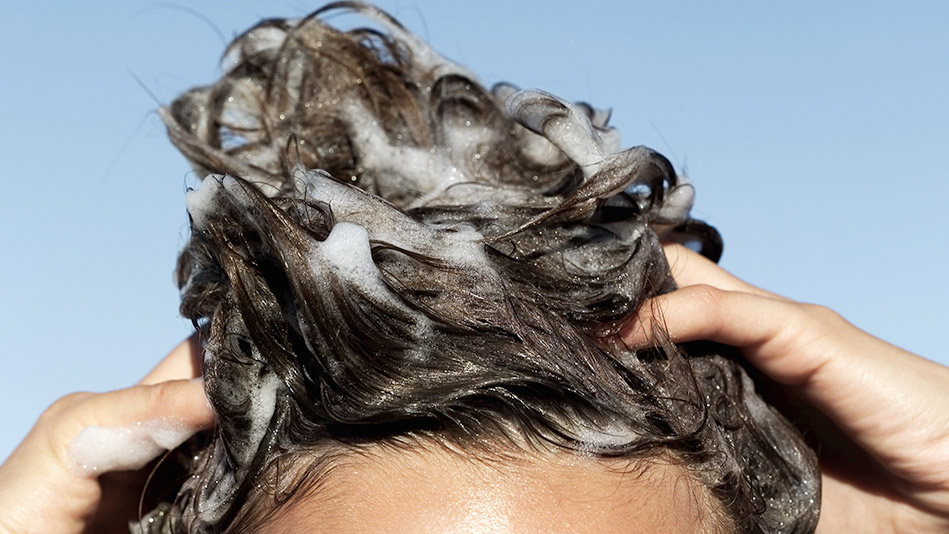Is Whole Blends Shampoo Beneficial for Your Hair? Let's Explore
For professionals in beauty and haircare, the inquiry Is Whole Blends Shampoo Beneficial for Your Hair? frequently surfaces when clients ponder whether this product is worth the investment. Over the years, Whole Blends Shampoo has garnered acclaim, but is it genuinely a valuable addition to haircare regimens? Lets dig into its ingredients, advantages, and expert opinions to help you make an informed decision.

What Sets Whole Blends Shampoo Apart?
The distinguishing characteristic of Whole Blends Shampoo is its unique formulation. Developed by Garnier, this shampoo boasts a blend of carefully chosen ingredients sourced from nature. With variants featuring coconut milk, honey, and avocado oil, each is tailored to tackle specific hair concerns.
This combination of natural extracts and delightful fragrances tends to attract clients seeking alternatives to harsh chemicals. But how effectively does this cater to professional styling and repair needs? To address this, let's take a closer look at its ingredients.
Key Ingredients and Their Benefits
- Coconut Milk and Aloe: Renowned for their moisturizing properties, these elements combat dry hair, leaving it soft and well-nourished.
- Argan Oil and Camellia: These oils are excellent for restoring natural luster while managing frizz.
- Honey and Propolis: Honey helps retain moisture, while propolis acts as a natural barrier against hair damage.
If your client's hair is color-treated or damaged, the blends enriched with argan oil could be particularly beneficial. But does this imply it's suitable for everyone? Not precisely.
Is Whole Blends Shampoo Suitable for All Hair Types?
Clients with oily, fine, dry, or curly hair have distinct needs. Beauticians have shared mixed reviews on the efficacy of Whole Blends Shampoo for various hair types:
Best Results: Shampoos within the Whole Blends line focused on hydration, particularly the coconut milk variant, deliver optimal results for dry or chemically treated hair. Likewise, the green tea and avocado variants excel in volumizing finer hair.
Considerations: For those with oily or fine hair, certain formulas might weigh down the strands, resulting in a dull look. Always ensure the shampoo blend aligns with your client's hair type.
Natural Ingredients vs. Chemicals
A significant selling point of Garnier's Whole Blends Shampoo is its focus on naturally derived components. However, its essential to note that this product line still contains sulfates, which may concern individuals seeking exclusively sulfate-free options.
Sulfates are cleansing agents that create a satisfying lather but can strip away natural oils, leading to dryness over time. If your client has very sensitive or damaged hair, the presence of sulfates in many Whole Blends shampoos could be a red flag. Providing clients with education on sulfates will help them understand their hair's true needs.
Best Practices for Beauty Experts
As a beauty expert, how should you guide clients regarding Whole Blends Shampoo? Openness and personalization are essential:
- Assess the client's hair type and the specific challenges they face.
- Emphasize the ingredients in Whole Blends Shampoo that could either support or worsen their hair condition.
- Consider a test run of the product on their hair, particularly if they have a sensitive scalp or are trying the shampoo for the first time.
Can the Shampoo Enhance Hair Health?
Garnier claims that Whole Blends strengthens and repairs hair. While natural ingredients have restorative properties, they are most effective on hair that isnt severely damaged. For more drastic issues, Whole Blends may complement a more intensive repair regimen but should not be relied upon as the sole solution.
Adopting other hair-friendly habits, such as consistent conditioning and reducing heat styling, can enhance results when paired with appropriate shampoos like those from the Whole Blends collection.
Alternatives to Consider
If your clients express disappointment with Whole Blends Shampoo, alternative options tailored to specific hair types may be a great solution. Brands like Nordstrom and Mankind Barbers NYC offer diverse choices suited to individual hair needs.
Final Verdict: Is Whole Blends Shampoo Worth Trying?
The resolution to Is Whole Blends Shampoo Beneficial for Your Hair? ultimately hinges on the users hair type and expectations. With its enriched formulas and natural compositions, it appeals to those searching for gentler haircare options. However, its crucial for both beauty experts and clients to consider the presence of sulfates and realistic outcomes when selecting any shampoo.
As a knowledgeable beauty professional, offering tailored guidance and educating clients will help them make informed decisions regarding their hair health, whether opting for Whole Blends Shampoo or exploring a different product line.

Frequently Asked Questions
1. Is Whole Blends Shampoo sulfate-free?
Most versions of Whole Blends Shampoo contain sulfates. Make sure to read the label carefully if youre specifically looking for sulfate-free formulas.
2. Can Whole Blends Shampoo be used daily?
In general, Whole Blends Shampoo can be used daily unless the client has an oily scalp, where frequent use might lead to greasy roots.
3. Which blend is ideal for damaged hair?
The Honey Treasures variant of Whole Blends Shampoo is highly recommended for damaged hair due to its nourishing and restorative properties.
4. What is the best way to select the right shampoo?
For in-depth tips on finding the ideal shampoo, refer to this guide.
Learn more about the benefits of natural ingredients at Sunflower oil benefits. Interested in olive oil? Find out here. For more on how sunflower oil is produced, read this article.
This article contains affiliate links. We may earn a commission at no extra cost to you.
